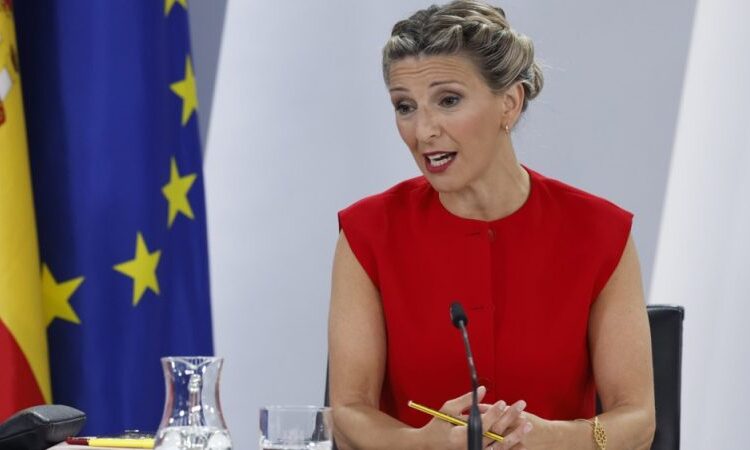
The next European Commission should have a commissioner with a social economy portfolio, Spanish Deputy Prime Minister and Labour Minister Yolanda Díaz said on Monday.
Díaz, who stepped down a few days ago as leader of the junior partner, Sumar, in the government of Socialist Prime Minister Pedro Sanchez, has called on the new European Commission to have a “Commissioner responsible for the Social Economy for the next legislature”.
All the European organisations and platforms that focus on trying to promote the social economy “are the hope that the EU needs today, more than ever,” Díaz said at an event in Rome on Monday organised by Social Economy Europe (SEE), a group representing nearly three million social enterprises and organisations in the EU bloc.
Díaz also praised the Liège Roadmap, which she said was “an essential guide to make the social economy an undisputed priority on the European political agenda, regardless of families and political ideologies”.
According to Díaz, the Liège Roadmap, which was adopted under the Spanish EU presidency in the second half of last year, requires a commissioner with a new portfolio focused exclusively on the challenges posed by the social economy.
Díaz also pointed out the need to renew as soon as possible “the Social Economy Intergroup in the European Parliament, supported by more than 100 MEPs from various political groups”.
“We will promote (in the EU) the incorporation of the social economy as a cross-cutting element in the Union’s industrial, economic and social policies, deploying in all its dimensions the recommendation (of that parliamentary group), ensuring a greater financial allocation and a timetable for the European Action Plan for the Social Economy,” Díaz added.
Díaz also said that European labour and social affairs ministers will continue to join forces to ensure that “the social economy becomes a strategic axis in the coordination of budgetary, economic and social policies in the framework of the European Semester.”
(Fernando Heller | EuroEFE.Euractiv.es)







